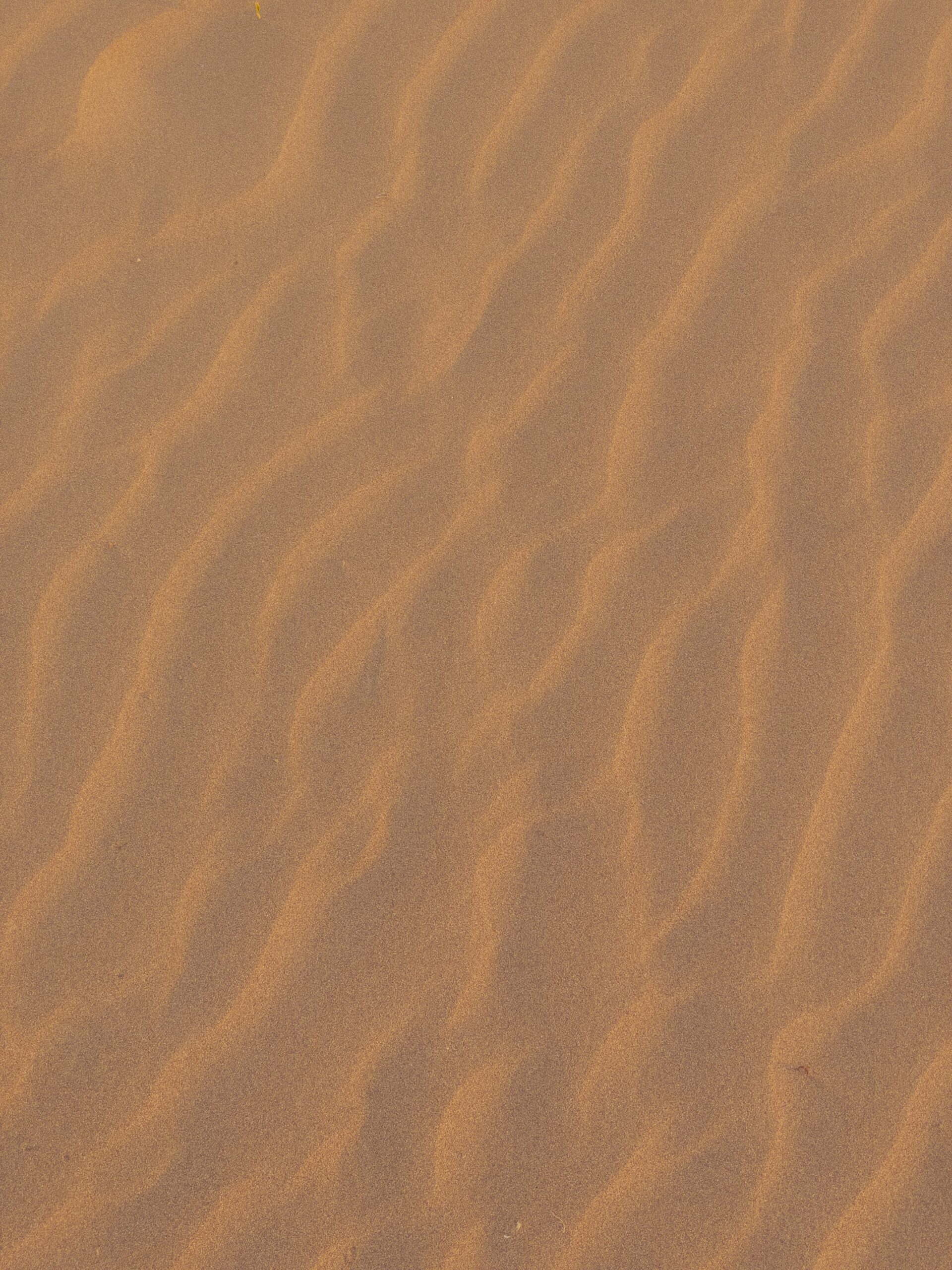Maintaining the cleanliness and functionality of well water screens and filters is crucial for ensuring a reliable and safe water supply. In this article, we will explore simple yet effective tips on how you can keep your well water screens and filters in pristine condition. By following these guidelines, you can ensure that your water remains clean and free from impurities, ultimately promoting your well-being and peace of mind.

Regular Maintenance
Regular maintenance is crucial for keeping your well water screens and filters clean and functional. By following a few simple steps, you can ensure that your well water system operates efficiently and provides clean and safe water for you and your family.
Cleaning the Screen
The first step in maintaining your well water system is cleaning the screen. Over time, the screen can become clogged with debris, sediment, and other particles, which can impede water flow and reduce the effectiveness of your filtration system. To clean the screen, remove it from the well and carefully wash it with a brush or soft cloth. Make sure to remove any visible dirt or debris from the screen before reinstalling it.
Cleaning the Filter
In addition to cleaning the screen, it is also important to clean the filter regularly. The filter plays a crucial role in removing contaminants from your well water, and a dirty or clogged filter can significantly reduce its efficiency. To clean the filter, remove it from the well and rinse it thoroughly with clean water. If necessary, you can also soak the filter in a vinegar solution to remove any built-up mineral deposits.
Checking for Silt and Sediment
Aside from cleaning the screen and filter, it is essential to check for any silt or sediment that may accumulate in your well water system. These particles can cause blockages and reduce water flow, affecting the performance of your filtration system. Regularly inspect the well water for any signs of silt or sediment and remove them if necessary. This will help prevent clogs and ensure that your well water remains clean and functional.
Inspecting for Wear and Tear
Periodically inspecting your well water system for wear and tear is another important aspect of regular maintenance. Check for any cracks, leaks, or damage to the well casing, pipes, and fittings. Addressing these issues promptly will prevent further damage and maintain the integrity of your well water system. It is also essential to inspect the electrical components of your system, such as the pump and wiring, to ensure they are in good working condition.
Preventing Contamination
Preventing contamination is crucial to maintaining the cleanliness and functionality of your well water screens and filters. Taking preventive measures will help safeguard your water supply and protect the health and well-being of your family.
Protecting the Well Opening
One of the simplest ways to prevent contamination is by protecting the well opening. This can be done by installing a well cap or seal. A well cap or seal acts as a barrier, preventing debris, insects, and other contaminants from entering the well. Make sure that the well cap or seal is in good condition and securely fastened to the well casing.
Using a Well Cap or Seal
Using a well cap or seal is an effective way to prevent contamination. These caps or seals are designed to fit securely over the well opening, providing a protective barrier against contaminants. When choosing a well cap or seal, ensure that it is the appropriate size for your well and meets industry standards. Regularly inspect and maintain the cap or seal to ensure its effectiveness.
Proper Disposal of Waste
Proper waste disposal is essential to prevent contamination of your well water system. Avoid dumping hazardous materials, chemicals, or pollutants near your well. These substances can seep into the ground and contaminate the groundwater, compromising the quality of your well water. Follow local regulations for waste disposal and dispose of any hazardous materials safely and responsibly.
Avoiding Chemical Contamination
Chemical contamination can be a serious concern for well water systems. Avoid using or storing chemicals near your well, as they can leak or spill, entering the groundwater and contaminating your well water. Be cautious when applying pesticides, fertilizers, or other chemicals near your well. Follow the manufacturer’s instructions carefully, and if possible, choose environmentally friendly alternatives to reduce the risk of chemical contamination.

Basic Cleaning Techniques
Implementing basic cleaning techniques is an essential part of maintaining clean and functional well water screens and filters. These techniques are simple yet effective in ensuring the optimal performance of your well water system.
Using a Brush or Soft Cloth
Using a brush or soft cloth is a basic cleaning technique for removing dirt and debris from well water screens and filters. Gently scrub the screen and filter with a brush or soft cloth, ensuring that all visible dirt and debris are removed. Be careful not to damage the screen or filter during the cleaning process.
Rinsing with Clean Water
Rinsing your well water screens and filters with clean water is another effective cleaning technique. After brushing or wiping off any visible dirt or debris, thoroughly rinse the screen and filter with clean water. This will help remove any remaining residue and ensure that your screens and filters are free from contaminants.
Soaking in Vinegar Solution
Soaking well water screens and filters in a vinegar solution can help remove mineral deposits and other stubborn contaminants. Fill a container with a mixture of water and vinegar, and place the screens and filters in the solution. Allow them to soak for a few hours or overnight, then rinse them with clean water. The vinegar solution will help dissolve mineral deposits and restore the efficiency of your screens and filters.
Using a Pressure Washer
Using a pressure washer can be an effective method for cleaning well water screens and filters, especially for more stubborn dirt and debris. However, it is important to use the pressure washer carefully and avoid excessive force, as it can cause damage to the screens or filter membranes. Follow the manufacturer’s instructions and adjust the pressure accordingly to ensure safe and effective cleaning.
Specialized Cleaning Methods
In some cases, basic cleaning techniques may not be sufficient to remove stubborn contaminants or restore the functionality of well water screens and filters. In such situations, specialized cleaning methods can be employed to address specific issues.
Backwashing the Filter
Backwashing the filter is a specialized cleaning method that involves reversing the water flow through the filter. This technique helps dislodge trapped particles and flush them out of the filter. It is important to consult the manufacturer’s instructions or seek professional guidance before attempting this method, as improper backwashing can damage the filter.
Chemical Cleaning Agents
Chemical cleaning agents can be used to remove stubborn contaminants from well water screens and filters. These agents are specially formulated to dissolve mineral deposits, remove organic matter, and eliminate bacteria or algae growth. It is crucial to choose the appropriate cleaning agent for your specific well water system and follow the instructions carefully. When using chemical cleaning agents, always wear appropriate protective gear and use them in a well-ventilated area.
Ultrasonic Cleaning
Ultrasonic cleaning is a specialized technique that uses high-frequency sound waves to clean well water screens and filters. This method is particularly effective in removing fine particles and debris that may be difficult to clean with traditional methods. Ultrasonic cleaning works by creating tiny bubbles in a cleaning solution, which gently scrub the surfaces of the screens and filters, dislodging dirt and contaminants. Consult a professional service provider or well specialist if you are considering ultrasonic cleaning for your well water system.
Filter Acidizing
Filter acidizing is a specialized cleaning method used to remove mineral scale and other deposits that can clog well water filters. It involves the use of a diluted acid solution, which is circulated through the filter to dissolve the deposits. It is important to note that filter acidizing should only be performed by professionals who are trained in handling acids safely. Improper use of acid can cause severe damage to the filter and pose a risk to the environment.

Screen and Filter Replacements
While regular maintenance and cleaning can prolong the life of your well water screens and filters, there may come a time when they need to be replaced. Knowing when and how to replace these components is essential for maintaining the functionality of your well water system.
Determining Replacement Frequency
The frequency of screen and filter replacements can vary depending on various factors such as the quality of the well water, the type of screen or filter used, and the usage patterns. It is recommended to consult a well specialist or refer to the manufacturer’s guidelines to determine the appropriate replacement frequency for your specific well water system.
Choosing the Right Replacement Parts
When it comes to replacing well water screens and filters, it is important to choose the right replacement parts. Consider factors such as the size, compatibility, and quality of the screens and filters. Consult with a well specialist or refer to the manufacturer’s specifications to ensure that you select the appropriate replacement parts that will maintain the efficiency of your well water system.
Replacing the Screen
Replacing the screen is a straightforward process but requires careful handling. Start by disconnecting the water supply and removing the old screen from the well. Thoroughly clean the well casing and any debris or buildup around the area. Install the new screen, ensuring it fits snugly and securely. Reconnect the water supply and carefully check for any leaks or issues before resuming normal usage.
Replacing the Filter
Replacing the filter is similar to replacing the screen but may require additional steps depending on the type of filter used. Start by disconnecting the water supply and removing the old filter from the well. Thoroughly clean the filter housing and any debris or buildup. If necessary, replace any O-rings or seals to ensure a proper fit. Install the new filter according to the manufacturer’s instructions. Reconnect the water supply, and check for any leaks or issues before resuming normal usage.
Professional Maintenance Services
While regular DIY maintenance is essential, there are instances where professional maintenance services are necessary. Hiring a well specialist or professional maintenance service provider can ensure that your well water system receives the expert care it needs.
Hiring a Well Specialist
When facing complex issues or if you are unsure about how to perform certain maintenance tasks, it is advisable to hire a well specialist. These professionals have the expertise and knowledge to diagnose and address any problems with your well water system. They can provide guidance, advice, and perform necessary repairs or replacements to keep your system clean and functional.
Scheduled Inspections and Maintenance
Scheduled inspections and maintenance by professionals are crucial for the long-term health of your well water system. Well specialists can conduct comprehensive inspections, identify potential issues, and perform preventive maintenance to ensure the optimal performance of your well water screens and filters. Regular maintenance visits can help detect problems early on and prevent costly repairs or system failures.
Professional Cleaning and Repairs
In addition to routine maintenance, professional well specialists can provide specialized cleaning and repair services for your well water system. They have access to advanced equipment and techniques to thoroughly clean well water screens and filters, ensuring that they perform at their best. If necessary, they can also make repairs or replace components to restore the functionality of your well water system.
Water Testing and Treatment
Professional well specialists can also conduct water testing to assess the quality of your well water. They can identify any potential contaminants or issues that may affect the safety and cleanliness of your water supply. Based on the test results, they can recommend appropriate water treatment methods or systems to ensure you have access to clean and safe drinking water.
Preventative Measures
In addition to regular maintenance and professional services, implementing preventative measures can help keep your well water screens and filters clean and functional in the long run.
Regular Water Testing
Regular water testing is an important preventative measure to ensure the quality and safety of your well water. Testing your water periodically for contaminants, bacteria, and other potential hazards can help you identify any issues early on and take appropriate action. Consult with a well specialist or refer to local health department guidelines for recommended testing frequencies and procedures.
Proper Well Construction
Proper well construction is crucial for preventing contamination and maintaining the functionality of your well water screens and filters. It is important to follow local regulations and guidelines when constructing or repairing your well. Ensure that the well casing is properly sealed, the well is located in an area away from potential sources of contamination, and that the well is constructed with appropriate materials and techniques.
Keeping the Surrounding Area Clean
Keeping the area surrounding your well clean and free from debris is an effective preventative measure. Regularly remove any vegetation, leaves, or trash that may accumulate near the well. This will help prevent the introduction of contaminants and reduce the risk of clogging your well water system.
Avoiding Contaminated Activities
Avoiding contaminated activities near your well is crucial for maintaining the cleanliness and functionality of your well water screens and filters. Be mindful of any potential activities that may introduce chemicals, pollutants, or other contaminants into the ground near your well. These activities can include chemical spills, improper waste disposal, or storing hazardous substances in close proximity to your well. By avoiding such activities, you can protect the integrity of your well water system and ensure the quality of your water supply.
Troubleshooting Tips
While regular maintenance and preventative measures can help keep your well water screens and filters clean and functional, it is important to be aware of common troubleshooting tips to address any issues that may arise.
Low Water Pressure
If you experience low water pressure in your well water system, it may indicate a blockage or a problem with the screens or filters. Perform a visual inspection of the screens and filters to check for any visible obstructions. Clean or replace any screens or filters that appear to be clogged. If the issue persists, it is advisable to consult a well specialist or professional service provider for further evaluation.
Frequent Clogging
Frequent clogging of well water screens and filters can be indicative of underlying issues. It may be caused by excessive sediment, high levels of contaminants, or improper filtration. Regularly clean and maintain the screens and filters, and consider implementing additional filtration methods if necessary. If the problem persists, consult a well specialist for professional advice.
Strange Taste or Odor
A strange taste or odor in your well water can be a cause for concern. It may indicate the presence of contaminants or bacteria in your water supply. Conduct water testing to identify the source of the taste or odor, and consult with a well specialist or professional service provider to determine the appropriate treatment or filtration methods to address the issue.
Unusual Noises or Vibrations
Unusual noises or vibrations coming from your well water system may indicate mechanical problems or issues with the pump or motor. If you notice any unusual sounds or vibrations, it is advisable to disconnect the power sources and contact a well specialist or professional service provider for inspection and repairs. Ignoring these symptoms may lead to further damage or system failures.
Safety Considerations
When performing maintenance or repairs on your well water screens and filters, it is important to prioritize safety. Follow these safety considerations to protect yourself and your well water system.
Turn off Water Supply
Before performing any maintenance or repairs, always turn off the water supply to your well water system. This will prevent accidental flooding or damage while working on the screens or filters. Additionally, ensure that any electrical power sources are also turned off to avoid the risk of electric shock.
Wear Protective Gear
When working with well water screens and filters, it is essential to wear appropriate protective gear. This can include gloves, goggles, and respiratory protection, especially when using chemical cleaning agents or working in confined spaces. Always prioritize your safety and follow the recommended safety guidelines during maintenance procedures.
Disconnect Power Sources
Before working on your well water system, make sure to disconnect any electrical power sources. This will help prevent accidental electric shock or damage to electrical components. If you are unsure about how to safely disconnect the power sources, consult a well specialist or professional service provider for assistance.
Follow Manufacturer’s Instructions
When performing maintenance or repairs on your well water screens and filters, it is important to follow the manufacturer’s instructions carefully. Each system may have specific guidelines or steps to ensure safe and effective maintenance. Read and understand the instructions before starting any work and consult experts if you have any questions or concerns.
Conclusion
Keeping your well water screens and filters clean and functional is essential for ensuring the quality and safety of your water supply. By implementing regular maintenance, following preventative measures, and seeking professional services when necessary, you can enjoy clean and safe well water for years to come. Remember to prioritize safety during maintenance and always consult experts for guidance and assistance. With proper care and attention, your well water system will continue to provide you and your family with a reliable and sustainable water source.

